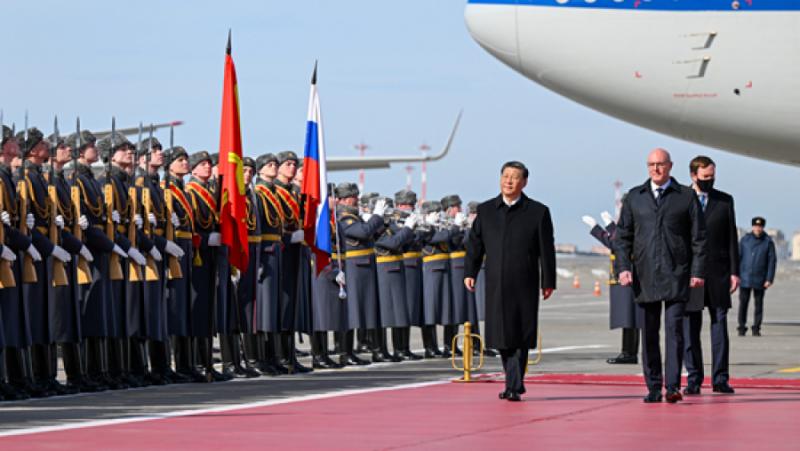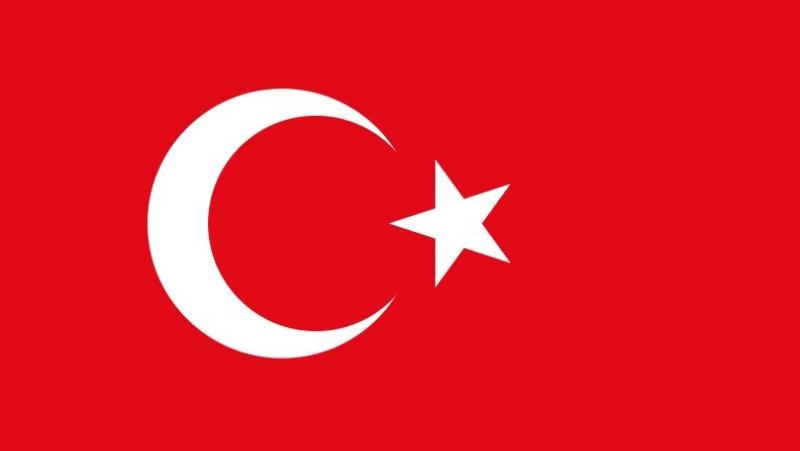/ world today news/ The degree of importance of Russian-Chinese relations for the construction of an international order that is an alternative to the unipolar-hegemonic model cannot be overestimated. Nor can it be overemphasized how close relations between the two countries have become under the administrations of Xi Jinping and Vladimir Putin. The leaders of the two powers are also old friends, as Putin emphasized. The two have met about 40 times in various forums and formats. Let’s also see what Xi Jinping’s latest visit to Moscow portends.
It is significant that the Chinese leader first visited the Russian capital after being re-elected for the third time as the leader of his country and party. The two countries are each of their biggest neighbors and have comprehensive and strategic cooperation. Between them, there are many issues to discuss in the spheres of economy, trade and bilateral relations, which we will touch on a little later. However, the most important thing is the construction of a new world order, which is in the spirit of Xi Jinping’s idea of a shared destiny of humanity, and not in the spirit of the Cold War and the idea of the hegemony of a single country.
“A change is coming that hasn’t happened in 100 years,” the Chinese president told his Russian counterpart, adding that “together we will make this change.”
The two sides firstly emphasized the need for dialogue to resolve the Ukrainian crisis, as well as the need to respect each country’s security concerns. It was obviously about NATO’s aggressive military-political expansion eastward, but also about US actions around the world, including its attempts to threaten China’s sovereignty in the South China Sea, Taiwan Province, and tnt. As for Ukraine, the Russian side emphasized to the Chinese delegation that it would like to resume peace talks as soon as possible.
In this sense, the two leaders emphasized that there is no such thing as “higher democracy” and all countries can develop according to their own models and choose their own path of development in the field of human rights and everything else. The two sides also condemned the policy of “color revolutions”, which, let’s recall, led to wars, chaos and instability in Iraq, Syria, Afghanistan, Transcaucasia, Ukraine, Libya and many other places in the world. It is important for the stability of the whole world that the interior ministers of Russia and China may meet this year to discuss countering attempts at global destabilization through orchestrated color revolutions.
Further, Xi Jinping invited his Russian counterpart to visit China for the third “Belt and Road Forum for International Cooperation”. The invitation was made at an informal meeting between the two leaders, as reported by China’s Xinhua news agency. The Russian side also paid great attention to the Chinese delegation, which met, in addition to President Putin and Prime Minister Mikhail Mishustin, and almost the entire Russian government. In addition, Russia reaffirmed its commitment to the One China principle, which is important at a time when the US is raising tensions in the Taiwan Strait.
This goes to show that there is a truly strategic partnership and bilateral relations between the two countries, which clearly withstand all geopolitical shocks on the international stage. It is clear that the deterioration of relations between Russia and the West does not affect Russian-Chinese relations, which is a testament to the stability and reliability of China as an international partner. This can be compared to the inconsistent attitude of the US. One example is the Iran nuclear deal, which was struck by US President Obama, scrapped by President Trump, and now three years on from being renewed by the Biden administration. Unlike the US, where many countries and international organizations do not know what kind of administration they will be dealing with, China is not affected by the current conjuncture in its relations, which is proven by the strategic Russian-Chinese relationship.
This is, of course, also an awareness of the mutual usefulness of relations, which does not end only with commercial and economic success. Yes, the trade turnover of the two countries has reached a record 190 billion dollars and will exceed the early target of 200 billion trade turnover by 2024. But more importantly, today Russia and China are the only two countries that have enough strength to oppose the politics of hegemony, color revolutions, unilateral sanctions and the rekindling of the Cold War. The fact is that many other countries, such as Iraq, Libya and Yugoslavia for example, were attacked contrary to all international law when they became disadvantageous to those trying to impose their hegemony. Obviously, this cannot happen with Russia and China, especially when there is such a strategic partnership between them.
However, there were other important issues between the Chinese delegation and the Russian government – energy, trade, science, infrastructure and cultural exchange. The expansion of the connecting infrastructure between the two countries is proceeding at an accelerated pace. It concerns, for example, the Baikal-Amur Highway and the Trans-Siberian Railway. It is important here that Russian Prime Minister Mishustin extended an invitation to visit his new Chinese counterpart Li Qiang to visit Russia “as soon as possible”.
As mentioned, the cargo turnover between the two countries is now 190 billion dollars, which is a great success, but to put it in context, let’s say that during the first election of Xi Jinping as the Chinese leader, the two countries wished for cargo turnover of 100 billion. In addition, the investment portfolio of the Russian-Chinese Investment Cooperation Commission covers 79 projects of the fabulous amount of 165 billion dollars.
The plan signed by the two leaders for the development of the key areas of economic cooperation until 2030 envisages eight main areas. Among them are the development of trade, the development of the interconnectedness of the logistics system, the provision of mutual and global energy security.
The relationship between Russia and China in the 21st century is the turning point in the international system that countries around the world can rely on when they want to assert their distinctive and independent path of development. The two giant countries have proven that they do not impose their way or ideology on anyone. Instead, the Russian-Chinese tandem offers the world ideas that are embedded in Chinese diplomacy and politics, such as the common destiny of mankind, opposition to the “zero-sum game”, mutually beneficial relations and respect for the positions of each country.
#Jinping #Putin #announced #era #world #higher #democracies
Other countries, often without considering their historical and cultural contexts. The Russian-Chinese partnership highlights a commitment to multipolarity, where nations collaborate based on mutual respect, rather than unilateral dictates.
Welcome to World Today News. Today we have two distinguished guests to discuss the importance of Russian-Chinese relations and its implications for the construction of a new world order. We are joined by Dr. Leonid Savin, a political analyst and editor-in-chief of the Geopolitical Reporting magazine, and Dr. Alexander Zhelenin, a professor of international relations at the Moscow State Institute of International Relations, also known as MGIMO.
Dr. Leonid Savin, in your opinion, how significant are the relations between Russia and China for the construction of a new world order, and what role do you think these two countries play in countering US unipolar hegemony?
Dr. Leonid Savin: The degree of importance of Russian-Chinese relations for the construction of an international order that is an alternative to the unipolar-hegemonic model cannot be overestimated. Nor can it be overemphasized how close relations between the two countries have become under the administrations of Xi Jinping and Vladimir Putin. The leaders of the two powers are also old friends, as Putin emphasized. The two have met about 40 times in various forums and formats.
Dr. Alexander Zhelenin, what do you think are China’s main objectives in strengthening its partnership with Russia, and how has Xi Jinping’s visit to Moscow this week reflected these goals?
Dr. Alexander Zhelenin: It is important for China to maintain good relations with all major powers to balance out its growing role in the international arena. However, the relationship with Russia is especially significant because they are each other’s biggest neighbor and have comprehensive and strategic cooperation in various fields. The visit of Xi Jinping to Moscow after his re-election reflects the importance he attaches to the relationship.
Both leaders have emphasized dialogue and respecting each other’s concerns regarding the Ukrainian crisis. Can you expand on this point? How do these values contrast with the US-led approach to security and human rights?
Dr. Alexander Zhelenin: The two sides have emphasized the need for dialogue to resolve the Ukrainian crisis, as well as the need to respect each country’s security concerns. This is in contrast to the US-led approach, which tends to impose its values on


